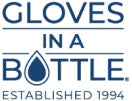
Allergic Reaction to Cleaning Products and How to Avoid It
Many of us are aware of what allergies can do to us. Depending on what we are allergic to, our symptoms will be different and the severity of our allergic reaction will vary as well. It could be anything from a runny nose to anaphylactic shock. In the US alone, statistics show that 40% of adults and 30% of children suffer from allergies to at least one substance.1 While the most common causes of allergic reactions are to airborne allergens and to certain foods, you can pretty much have an allergic reaction to anything. Having an allergic reaction to cleaning products is one that is unbelievably common yet often ignored.
Common Allergies and Signs of an Allergic Reaction
While we can be allergic to almost anything, the most common causes of allergic reactions are airborne allergens like dander, dust mites, mold and pollen or specific foods like nuts, dairy, eggs, soy, shellfish and wheat.2
While the allergens can vary, so can our reactions to each substance. Allergies can cause us to sneeze, cough, get a runny nose, have itchy and watery eyes, develop a rash, trigger asthma attacks and in the worst cases, it can cause us to go into anaphylactic shock. These are all reasons to be aware of what we might be allergic to and to avoid coming in contact with these allergens.
However, there is one other common type of allergy that we seem to often ignore and just think is something we have to endure. What we’re talking about is having allergic reactions to cleaning products which can cause allergic contact dermatitis. While for some it may just be a little bit of dry skin, for others it can mean blisters, hives, a flare-up of eczema or psoriasis and extreme itching and burning sensations on the skin. Rather than just irritating the skin, it causes our immune system to overreact and attack it.
How to Avoid Exposure to Cleaning Products
Cleaning products are things that most of us come in contact with on a daily basis. We use them for cleaning everything in our lives and we are unaware of just how harsh these products can be on our skin. Whether it’s a quick wipe or a full-on spring cleaning session, our skin is not happy when we expose it to chemical irritants and allergens such as triclosan, ammonia, hydrochloric acid and formaldehyde, just to name a few. Even simple soap can trigger our skin and cause discomfort.
We can’t just simply decide that we'll never clean anything again. (I wish it were that simple!) We can, however, make some simple changes that will help protect our skin and avoid having allergic reactions to the cleaning products we use.
- Wear protective gloves when using harsh cleaning products – regardless of how minor the job is.
- Keep the area well ventilated during cleaning by keeping doors and windows open.
- Replace harsh chemicals with more gentle cleaning products or homemade DIY recipes using vinegar and baking soda, for example.
- Wear a shielding lotion like Gloves In A Bottle before cleaning to help give your skin an extra layer of protection from irritants and allergens.
If your skin’s allergic reaction persists, you may want to see a dermatologist for a closer look to avoid any further complications. Don’t ignore the signs of an allergic reaction.
Small Changes Can Have a Big Impact on Our Skin
If we know we are allergic to peanuts, we don’t eat any. For the same reason, if your skin reacts badly to a substance or a product, why let it come in contact with it? Prioritize the health of your skin to avoid the next allergic reaction to cleaning products. A simple change in how we clean, what we clean with or how we protect ourselves could make a world of a difference to the comfort and health of our skin.
1 https://www.webmd.com/allergies/allergy-statistics
2 https://www.mayoclinic.org/diseases-conditions/allergies/symptoms-causes/syc-20351497
